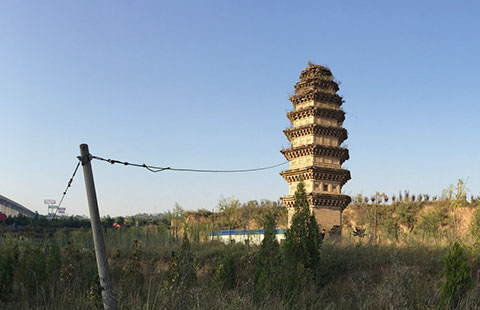Optimistic on Belt and Road plan
Updated: 2015-10-15 22:26
By AMY HE in New York(China Daily USA)
|
||||||||
China’s Belt and Road Initiative has a good chance of succeeding because it draws on the country’s strong experience with infrastructure financing, and China watchers shouldn’t worry that the program is an extension of the country’s foreign policy, said the CEO of a subsidiary of one of China’s largest investment banks.
“I think One Belt, One Road is not just what some of the people outside of China have worried about — that it’s China’s global foreign policy — I think it’s an extension of what China is pursuing for its domestic development,” said Zhang Lanlan, CEO and managing director of CICC US Securities, a subsidiary of CICC, on Wednesday. “It’s making contributions with the competitive advantage that it has been able to accumulate and build in the last decade.”
Initial response from capital markets to the Belt and Road proposal was “very, very positive,” and though there are some questions raised in light of China’s rocky stock market in the past couple of months, Zhang said she is hopeful that the country can draw on experience to push ahead with the program.
Zhang made her remarks at an annual gathering in New York of experts hosted by Caixin Media, which publishes various magazines on Chinese economics and finance.
She said those expecting challenges with China’s execution of the program should look to the country’s response to the 2008 financial crisis, which was to invest on domestic infrastructure aggressively.
“We’re starting to see the reality of the difficulty of execution over there, but I’m hopeful in the sense we do have over the years accumulated a lot of experience in project financing,” she said. “I do feel that China has a lot of experience and contributions it can make in terms of meeting deadlines, providing low-cost equipment, etcetera. For that reason, I’m hopeful.”
On China’s anti-corruption campaign, Zhang said she feared it might lead to company executives avoiding risk so they won’t be criticized.
“They become very worried about what they can do and what they can’t do. That could lead to some very conservative approaches when they’re going for external projects,” she said.
“I think on one hand, we really need to differentiate some of the problems that were led by corruption, but, on the other hand, we have to realize that we have to trust Chinese companies and trust senior management that they can do their job and actually be encouraged to make some mistakes. If you don’t have the tolerance for risks and you don’t have the tolerance for mistakes, you might end up with the situation where nobody wants to do anything to try to avoid the potential risks,” she said.
Daniel Rosen, founding partner of the economic research firm Rhodium Group, expressed more caution about the Belt and Road program, which was proposed in 2013 by President Xi Jinping to create economic ties between countries along the old Silk Road.
Rosen said the program is part of the country’s strategy to “address week aggregate global demand — and China’s internal demand — situation” so that it can restore external demand growth potential that was crucial to the country’s development over the last three decades.
“I’ve already said this is in China’s interest ultimately is why this strategy is being put in place. It’s not principally developmental motive. Yes, China does want to help save the world and that’s a good thing, but this wouldn’t be happening the way it’s happening if it weren’t in China’s core economic and geopolitical interests to unfurl this extraordinary combination of programs,” he said.
Ultimately it is in the interest of participating nations to receive support from China, though countries have to be careful about entering into an “unhealthy codependence between a development credit grantor and a developing state,” he said.
amyhe@chinadailyusa.com

 Cui: China, US should share global vision
Cui: China, US should share global vision
 Speaking Mandarin attracts Chinese homebuyers in the US
Speaking Mandarin attracts Chinese homebuyers in the US
 Top 10 overseas destinations of National Day holidaymakers
Top 10 overseas destinations of National Day holidaymakers
 Pink landscape in Shanghai invites visitors
Pink landscape in Shanghai invites visitors
 Hornets beats Clippers in a row in NBA Global Games
Hornets beats Clippers in a row in NBA Global Games
 Leaning pagoda hooked by a cable wire
Leaning pagoda hooked by a cable wire
 Autumn's colorful wardrobe
Autumn's colorful wardrobe
 Chinese Navy's training vessel arrives in Pearl Harbor
Chinese Navy's training vessel arrives in Pearl Harbor
Most Viewed
Editor's Picks

|

|

|

|

|

|
Today's Top News
Tu first Chinese to win Nobel Prize in Medicine
Huntsman says Sino-US relationship needs common goals
Xi pledges $2 billion to help developing countries
Young people from US look forward to Xi's state visit: Survey
US to accept more refugees than planned
Li calls on State-owned firms to tap more global markets
Apple's iOS App Store suffers first major attack
Japan enacts new security laws to overturn postwar pacifism
US Weekly

|

|








